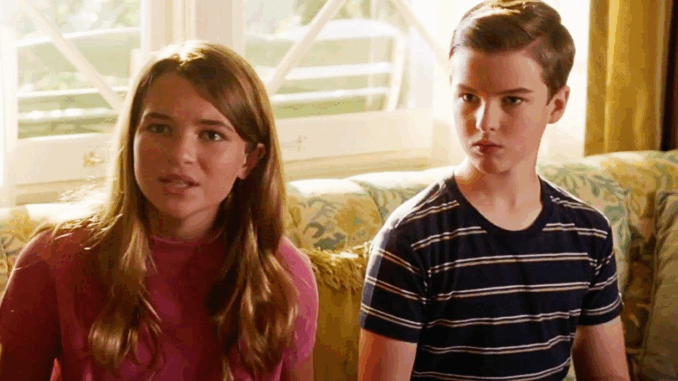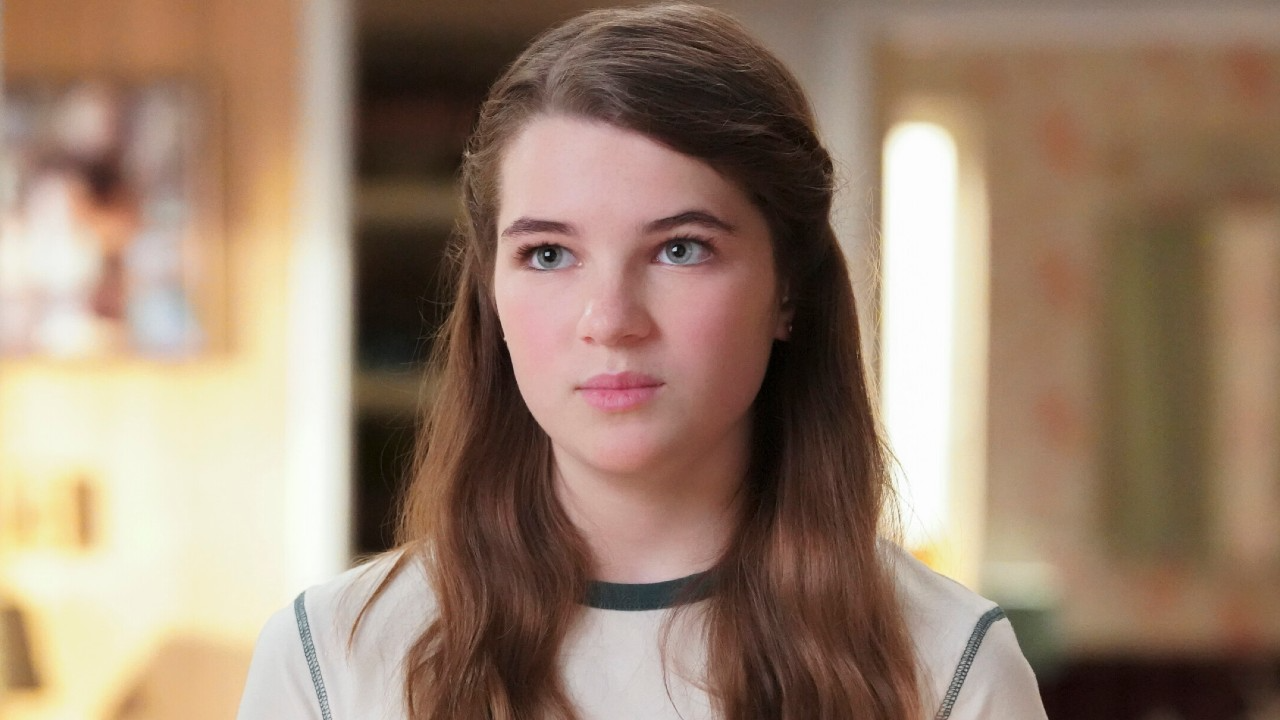
Introduction: Blink and You Miss It—The Cooper Twins Grew Up
It feels like just yesterday that Sheldon was nervously starting high school and Missy was cracking jokes at the dinner table, still in pigtails. But a recent statement from one of Young Sheldon’s stars made fans collectively gasp: Sheldon and Missy Cooper are now full-blown teenagers.
Yep. They’ve quietly crossed the threshold from kids to adolescents—and if you haven’t been paying close attention, you might’ve missed just how much they’ve changed.
This isn’t just a milestone for the characters—it’s a major turning point for the show itself. Here’s what this coming-of-age phase means for the series, the characters, and The Big Bang Theory legacy.
The Star’s Subtle But Powerful Reminder
The Cast Sees What We Don’t Always Notice
In a recent interview, Raegan Revord (Missy) or Iain Armitage (Sheldon)—depending on the most recent source—reminded fans that the twins are now teenagers, not kids anymore. It wasn’t just a throwaway comment. It was a reality check.\Why That Comment Hit Hard
Because Young Sheldon has always carried a warm, nostalgic vibe, many fans have treated Sheldon and Missy as “forever young.” But the actors—and the characters—have grown. And the tone of the show has shifted right along with them.
The Physical and Emotional Transformation
From Short Pants to Teen Problems
Look at Season 1 Sheldon next to Season 7 Sheldon—it’s a different kid entirely. The voice is deeper. The clothes are less “child prodigy” and more teen science nerd. Missy, too, has blossomed into a strong, expressive teen navigating real emotional complexities.
Growth Beyond Appearance
It’s not just about looks. Their storylines are heavier now. More emotional. Less whimsical. We’re watching them deal with heartbreak, loss, identity, and rebellion—not just playground politics or sibling spats.
Why It Matters for the Storyline
The Stakes Are Higher Now
Teen Sheldon is facing genuine stress—academically, emotionally, and socially. And Missy’s arc has evolved into one of the most relatable in the series. These aren’t kids who need help tying their shoes anymore—they’re making life-altering decisions.
Teenage Drama Adds New Depth
From first crushes to religious doubts to questioning their family dynamic, the Cooper twins are grappling with everything that makes adolescence confusing and unforgettable.
Missy’s Teen Years Deserve More Spotlight
She’s Outgrowing the “Sidekick Sister” Role
Missy’s transition into her teenage years has shown just how much potential the writers still haven’t fully tapped. Her emotional range, sharp humor, and growing frustrations with being overlooked are setting her up for something bigger.
Teen Missy Is More Than a Supporting Character
She’s no longer just Sheldon’s “normal” twin. She’s becoming the most emotionally resonant character on the show—and fans are noticing.
Sheldon’s Teenage Transition Isn’t Easy, Either
Puberty and Genius? Not a Great Mix
Sheldon is still brilliant, but now he’s awkward in a new way. Navigating hormones, social anxiety, and intellectual isolation has added complexity to his character—and makes his future quirks in The Big Bang Theory all the more understandable.
Emotional Growth, One Breakdown at a Time
Teen Sheldon is vulnerable. He’s getting attached. He’s facing loss. His emotions aren’t robotic—they’re real, raw, and often messy. And that’s been both fascinating and heartbreaking to watch.
The Show Has Quietly Matured Alongside Them
From Wholesome Sitcom to Character-Driven Drama
Young Sheldon started out light and quirky. Now, it’s a coming-of-age dramedy filled with nuance. The tone shift is subtle, but undeniable—and the show is better for it.
Humor is Still There—But It’s Deeper
Teen angst, parental struggles, and the slow unraveling of the Cooper family dynamic are being balanced with classic Cooper sarcasm and wit. That’s what keeps viewers hooked.

Why Fans Didn’t See the Transition Coming
Nostalgia Clouds the Timeline
Many fans watch Young Sheldon through a nostalgic lens, expecting it to stay sweet and innocent. So when the characters started evolving, it caught some viewers off guard.
The Actors Grew Up—And So Did the Stories
It’s not just character development—it’s real life. The actors aged. Their performances matured. And the writing evolved to match that growth.
What This Means for the Future of the Show
We’re Nearing the End of the Prequel Era
Now that Sheldon and Missy are full teens, Young Sheldon is inching closer to the timeline established in The Big Bang Theory. That means big events—college, family fallout, and possibly even George Sr.’s fate—are around the corner.
The Final Chapters Could Be the Most Powerful
As these teenage characters move toward adulthood, their decisions will define who they become. The drama is about to deepen. And fans should be ready.
The Missy Factor—A New Hope for Spinoffs
Teen Missy Could Carry Her Own Show
With Missy’s character deepening in such an authentic way, a spinoff about her life beyond Young Sheldon makes more sense now than ever. Teenage Missy is compelling, conflicted, and completely real.
The Teenage Era Could Be Just the Beginning
She’s already becoming the heart of the show. With the right writing, she could take that heart and carry a whole series of her own.
Conclusion: The Teen Years Change Everything
Sheldon and Missy aren’t little kids anymore—and that’s a big deal. This recent reminder from the Young Sheldon cast highlights what fans might not have noticed: the show has quietly transitioned from childhood whimsy to teenage realism.
This new phase is more emotional, more complicated, and—honestly—more meaningful. Watching Sheldon and Missy grow up on screen has become more than just TV nostalgia. It’s become a coming-of-age story we didn’t know we needed.
5 Unique FAQs
Q1: Who reminded fans that Sheldon and Missy are now teenagers?
A1: One of the show’s stars, likely Raegan Revord or Iain Armitage, made the comment during a recent interview or appearance, highlighting their characters’ growth.
Q2: Why is it important that Sheldon and Missy are now teenagers?
A2: It signals a major shift in storylines—from lighthearted childhood stories to deeper, more complex coming-of-age themes.
Q3: How has Missy’s character changed as a teenager?
A3: She’s more emotionally aware, rebellious, and reflective. Her arc now deals with identity, family expectations, and emotional neglect.
Q4: How does teen Sheldon compare to child Sheldon?
A4: Teen Sheldon is more vulnerable, emotionally challenged, and isolated—making his eventual personality in The Big Bang Theory more understandable.
Q5: Will Sheldon and Missy’s teen years play into any future spinoffs?
A5: Possibly. Missy’s character especially has the potential to lead her own series, and this stage of her life could be the perfect launching point.
